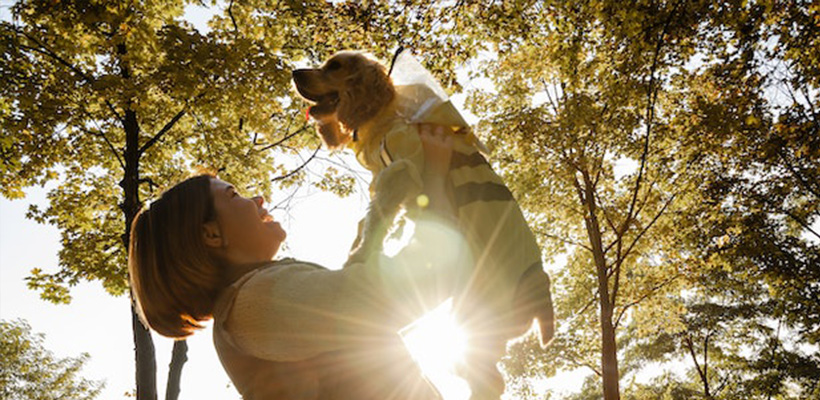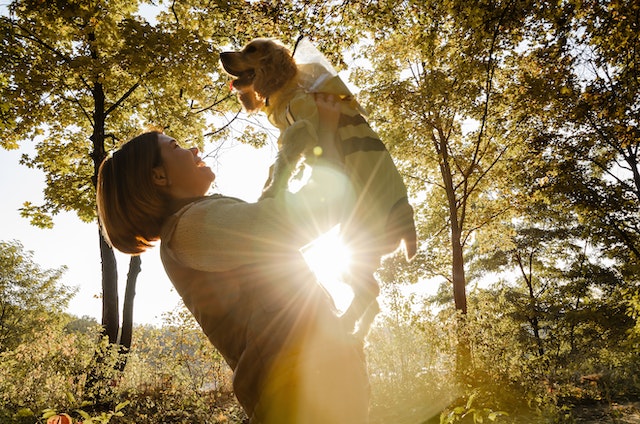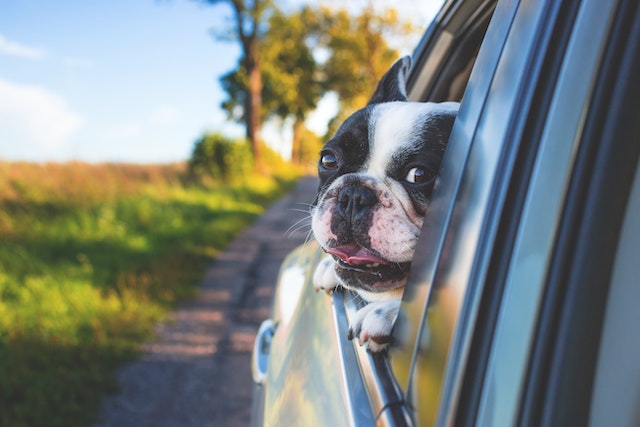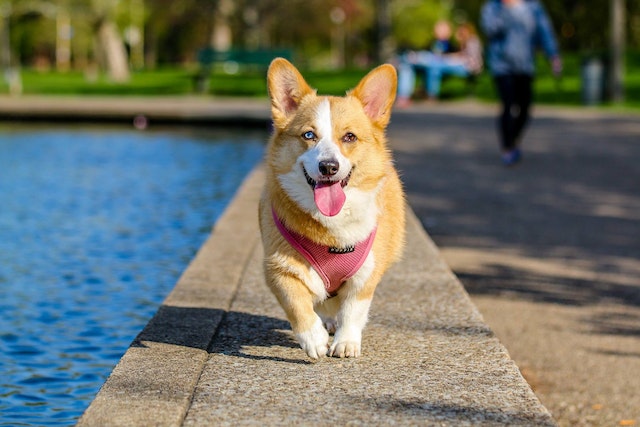
This article is contributed by guest author Alexander Fernandise.
How Can You Help Your Dog Lead a Stress-Free Life?
How can you help your dog lead a stress-free life?
You’re not alone if you feel like your dog is constantly stressed. According to the American Kennel Club, 43% of dogs in the US will exhibit at least one form of stress throughout their lifetime. There are many reasons why a dog may suffer from stress and anxiety, including separation issues, where they develop separation anxiety and thunderstorm phobia.
Anxiety can be caused by anything from changes in household routine to some medical conditions such as seizures or arthritis-related pain. While stress and anxiety are common among pets, it’s essential to provide proper support to help them navigate difficult situations.
Do Dogs Experience Stress?
Just because your dog shows signs of stress doesn’t mean they are depressed or worried. It’s normal for dogs to feel stressed. After all, they are a social species and constantly adapt to changes in their environment. Focus can be good for them as it helps them learn faster and stay alert to their surroundings.
According to some experts, dogs under stress tend to bark more, startle more, and get anxious when they need to use the bathroom. They may also whimper randomly, especially when a new person or animal enters the house, like another dog or child.

Some Common Causes of Stress in Dogs
While there are things that you can do to help your dog deal with anxiety attacks, you should still see a veterinarian for anxiety advice pertinent to your specific pet. Symptoms that indicate your dog is about to go into an anxiety attack include vomiting, restlessness, and pacing/barking in one location. In addition, several things can trigger stress in dogs. Some of these are listed below:
- Being left alone in a different place
- Family conflict
- Being left alone at home for long periods
- Moving to a new home or neighbourhood
- Pregnancy and the excitement of gaining new puppies
- Loud noises such as fireworks, thunder, gunshots and the sound of pots and pans dropping on the floor.
When the routine of a dog’s life is interrupted by something tragic, it gives them stress and depression. They can often be confused on how to react in new situations because they’ve never been in that situation before, so they freeze up into inaction. Instead, provide your dog with an outlet for its needs. Take them on a long walk and break up the trip with playtime and potty breaks.

Calming Pheromones to Relieve Stress
If your dog is experiencing anxiety, you can give them calming pheromones to relieve stress. These pheromones are available in spray or as oils that can be rubbed into your dog’s hair. Both have the same effect of calming down your dog when stressed or anxious, but talk to your vet before introducing any new stress-relief substances to your dog. For those who have not had much success through usual means of how to de-stress their dog, calming pheromones can be an answer to these issues.
Dogs are just like their owners in the sense that stress can affect their mood and attitude for a long time. The best way to help your dog is by taking the following measures:
- Provide your dog with adequate exercise
- Try and avoid stressful situations
- Give them relaxing pheromones when needed (as advised by your vet)
- Ensure that all of your pet’s needs are met, especially their emotional and physical needs
- Spend time with them
Being with your dog is a beautiful, eye-opening experience, because they will show you what they feel and need. By providing help for them to deal with their stress and anxiety, you can ensure that they’re happy and healthy! The most important thing is to keep your puppy clean, fed, and well-maintained.

Car Anxiety in Dogs and Its Solution
Some dogs are hesitant to travel in cars and start acting weirdly when forced on a car trip. This is a common anxiety disorder that dogs suffer from. Dogs suffer from car anxiety if forced to travel in an enclosed space where they cannot see their surroundings. Almost any dog can exhibit this behaviour, which usually manifests as growling or twisting around, hiding, panting and shying away from sudden noises or movements.
Several factors can cause your dog’s behaviour to be affected, including stress caused by traveling. For example, if your dog is stressed about travelling in the car, you might notice that they behave differently when they see the car keys in your hand. The best way to deal with this problem is by taking the following measures:
- Have someone take care of your dog while you’re out. Try not to leave your dog alone at home too much, as this might cause their anxiety level to rise.
- Let your dog ride in a crate. This way, they won’t feel anxious in seeing their fast-moving surroundings.
- Slowly introduce your dog to cars by gradually building up their trust in the vehicle. This can be done by taking your dog for car rides a lot, or letting them ride in a small crate before driving out.
When your pup’s in the car, avoid sudden movements and noises like screeching tires, swerving, or rapid acceleration and deceleration. These sudden movements could trigger your dog’s anxiety.

Tips to Relieve Stress From Your Pet
Dogs are widely-known as the most loyal animal in the world, and they love their owners unconditionally. However, it would help if you watched your pet’s behaviour after a stressful event. If you have noticed that your dog is acting strangely or seems stressed out to the point that they don’t behave as usual, it is essential to provide your pup with some activity to help ease their mind and get over stress. Take a look at some tips to better support your furry friends in overcoming anxiety:
- Take Them on a Long Walk
This is the quickest way to relieve your pet of stress. Start taking them out for long walks and try to break it up with a play session or a short potty break. Make sure that you exhaust them by going as far away from home as their daily exercise regimen will allow so they can use up energy that, if bottled up, could lead to an increase in anxiety.
- Give Them Playtime
Take their favourite toy or ball and have some fun! While you’re playing with your pup, walk around and talk to them. This will keep them occupied and help them release all the pent-up energy. Next, take them outside and let them explore at their own pace (on a leash, if not an enclosed space). This will help give your dog’s mind something else to focus on and won’t think about whatever stressful event or trigger that had occurred previously.
- Go for a Ride
Take your pup to the local park and let them roam at their own pace. You can take them to a nearby park or let them explore their surroundings at home. This will allow them to wander around freely or look out at the road while you’re riding in the car with them (if this isn’t a stressor for them). This can help give your pet some time away from their anxiety triggers, and pups almost always feel better after doggie playtime!
You may be surprised at how fast your dog will recover from stress after performing these actions. The faster you can relieve your dog of his focus, the better it will be for their health in the long run. Suppose you let your dog carry around a lot of stress for an extended period. In that case, he might develop more severe health conditions such as depression or tumors.
- Healthy Puppy Diet for Healthier Mind
A dog’s diet, eating, and habits significantly impact its mental health. Very often, we tend to give a lot of attention to the physical health of a dog, but pay little or no attention to its mental health. However, mental health is as important as any other physical condition and should not be neglected. A mentally fit dog oftentimes will lead to them having good overall growth and development.
A balanced diet with regular essential nutrients is the key to growth and development in dogs. They don’t eat junk food like us humans do, but they need the right amount of vitamins, proteins, minerals and other essential nutrients to grow properly and keep them active in their everyday lives. So, make sure to give your dog a variety of non-toxic fruits, vegetables and meats in their diet. The goal should be to avoid unhealthy processed dog foods and only consume natural, organic and non-processed foods.
Final Thoughts
While your dog can’t speak with you, you can learn a lot about things that might be bothering them with the changes in their body language. Paying close attention to what your dog does, the way they move, and how much time they spend alone can help determine if they’re suffering from anxiety or simply processing a new thing that happened lately. But, of course, it’s always best to nip things in the bud as fast as possible so they won’t get out of hand and cause more severe problems later. Being aware and proactive in your dog’s mental health will keep them healthy and happy for years to come!
